Filter by
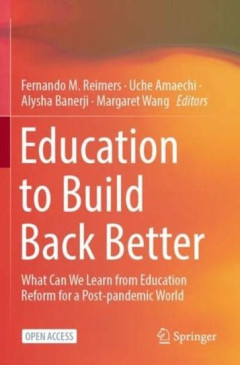
Education to Build Back Better
This open-access volume investigates the impact of the COVID‑19 pandemic on global education systems and underscores the urgent need for large-scale reforms, particularly across the Global South. Building on a theoretical model of educational change developed by Reimers, the book delves into major reform initiatives implemented in five countries: India, Egypt, Taiwan, Vietnam, and Senegal, an…
- Edition
- -
- ISBN/ISSN
- 978-3-030-93951-9
- Collation
- 207 page
- Series Title
- -
- Call Number
- 370.115
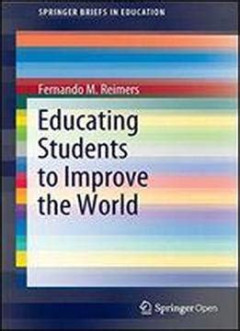
Educating Students to Improve the World
This open-access book examines how to support students in discovering purpose and agency in a rapidly changing world. Reimers offers a visionary, multidimensional framework for global education—spanning cultural, psychological, professional, institutional, and political perspectives—and integrates extensive empirical research. He presents concrete curriculum examples and global citizenship …
- Edition
- -
- ISBN/ISSN
- 978-981-15-3887-2
- Collation
- 138 page
- Series Title
- -
- Call Number
- 370.11
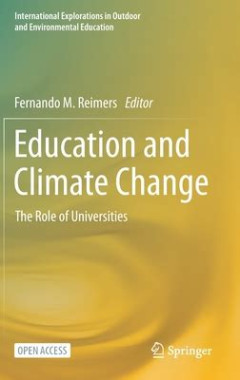
Education and Climate Change
This open-access volume examines how universities can lead climate change education through partnerships with schools and communities. It reviews gaps in current efforts and presents case studies—from the Middle East to Guatemala, Haiti to Pakistan—demonstrating a five‑step process for designing context-specific curricula that foster deep learning and social action
- Edition
- -
- ISBN/ISSN
- 978-3-030-57927-2
- Collation
- 213 Hal
- Series Title
- -
- Call Number
- 333.7071
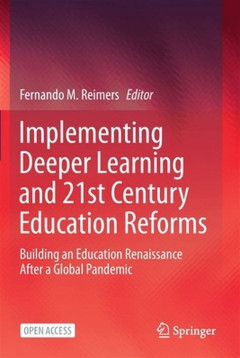
Implementing Deeper Learning and 21st Century Education Reforms
The book explores how deeper learning and 21st-century education reforms are implemented in schools. It highlights strategies that promote critical thinking, collaboration, and real-world problem-solving, and discusses the challenges and changes needed to support innovative, student-centered learning
- Edition
- -
- ISBN/ISSN
- 978-3-030-57039-2
- Collation
- 202 Hal
- Series Title
- -
- Call Number
- 379
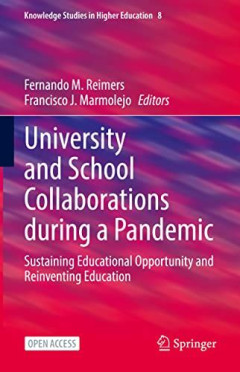
University and School Collaborations during a Pandemic
University and School Collaborations during a Pandemic examines how universities and schools around the world partnered to respond to the unprecedented educational challenges caused by the COVID-19 pandemic. The book presents a series of case studies from various countries, highlighting innovative collaborations that aimed to support students, teachers, and communities during the crisis.
- Edition
- -
- ISBN/ISSN
- 978-3-030-82159-3
- Collation
- 352 Hal
- Series Title
- -
- Call Number
- 371.1025

Education to Build Back Better
This book examines how education systems around the world can be reformed and strengthened in response to the COVID-19 pandemic. It draws on lessons from past educational reforms to inform how policymakers, educators, and institutions can "build back better" — making education systems more equitable, resilient, and future-oriented. The authors explore reforms at macro (policy), meso (curricul…
- Edition
- -
- ISBN/ISSN
- 978-3-030-93951-9
- Collation
- 207 Hal
- Series Title
- -
- Call Number
- 370.1
 Computer Science, Information & General Works
Computer Science, Information & General Works  Philosophy & Psychology
Philosophy & Psychology  Religion
Religion  Social Sciences
Social Sciences  Language
Language  Pure Science
Pure Science  Applied Sciences
Applied Sciences  Art & Recreation
Art & Recreation  Literature
Literature  History & Geography
History & Geography